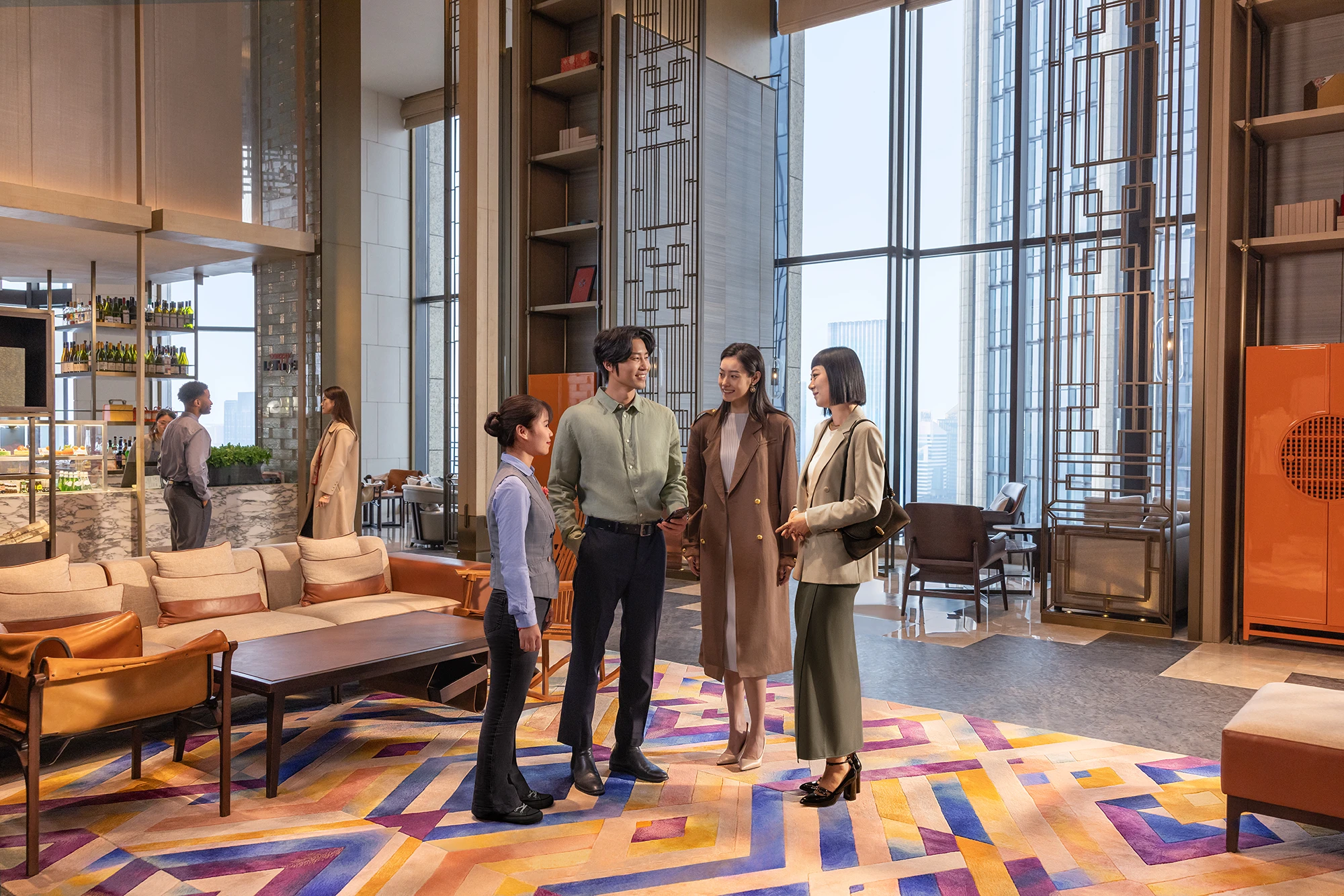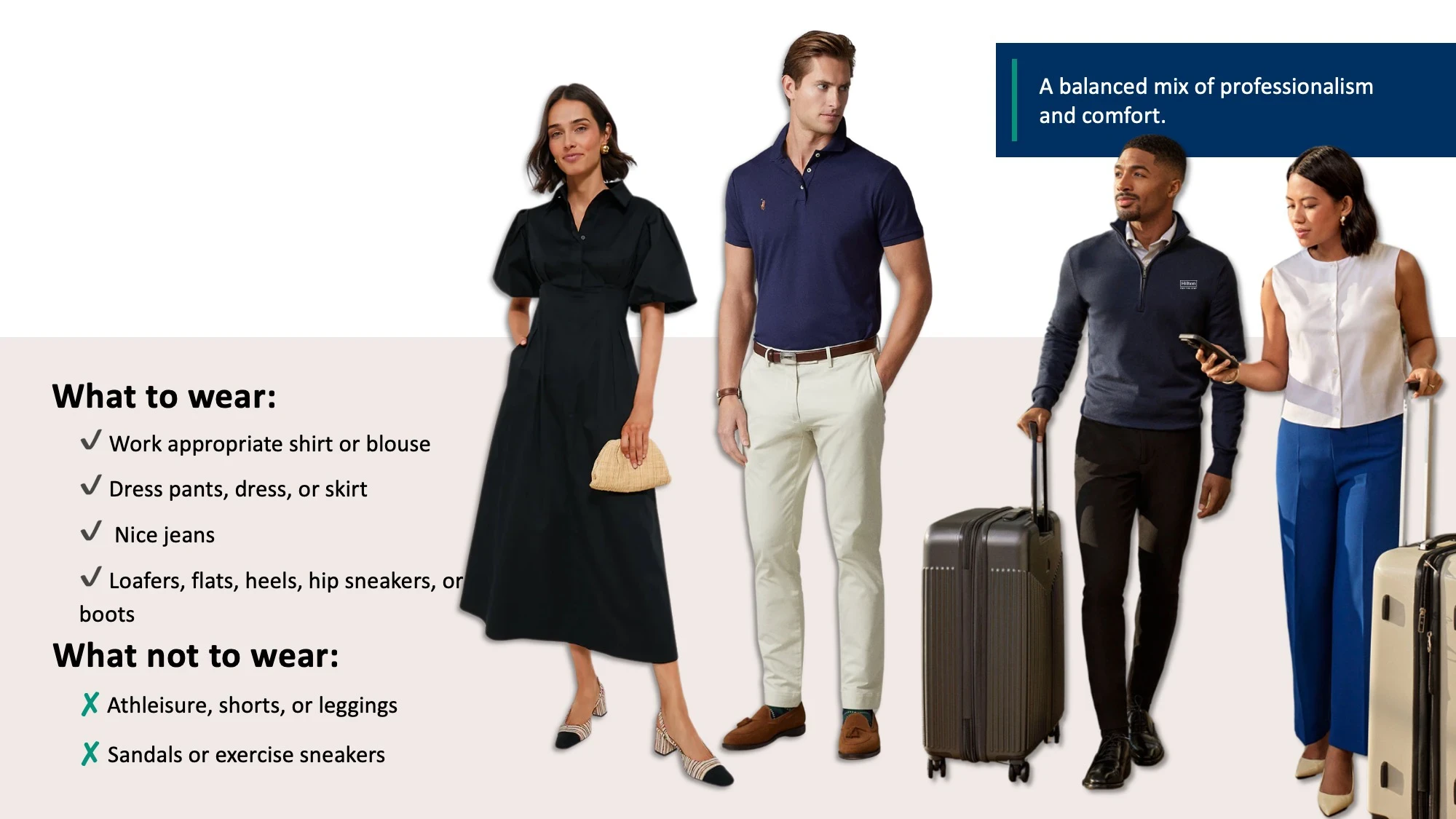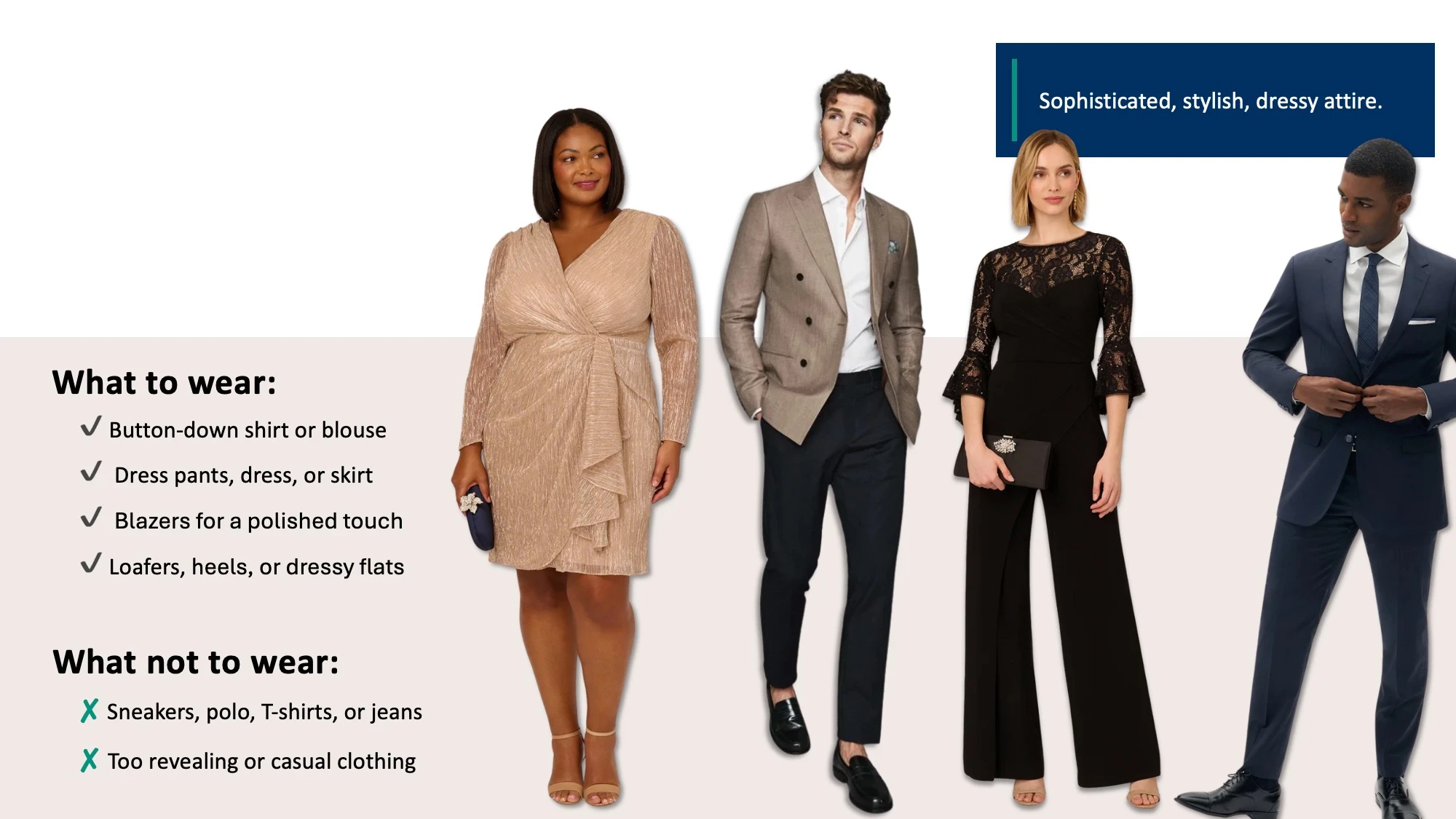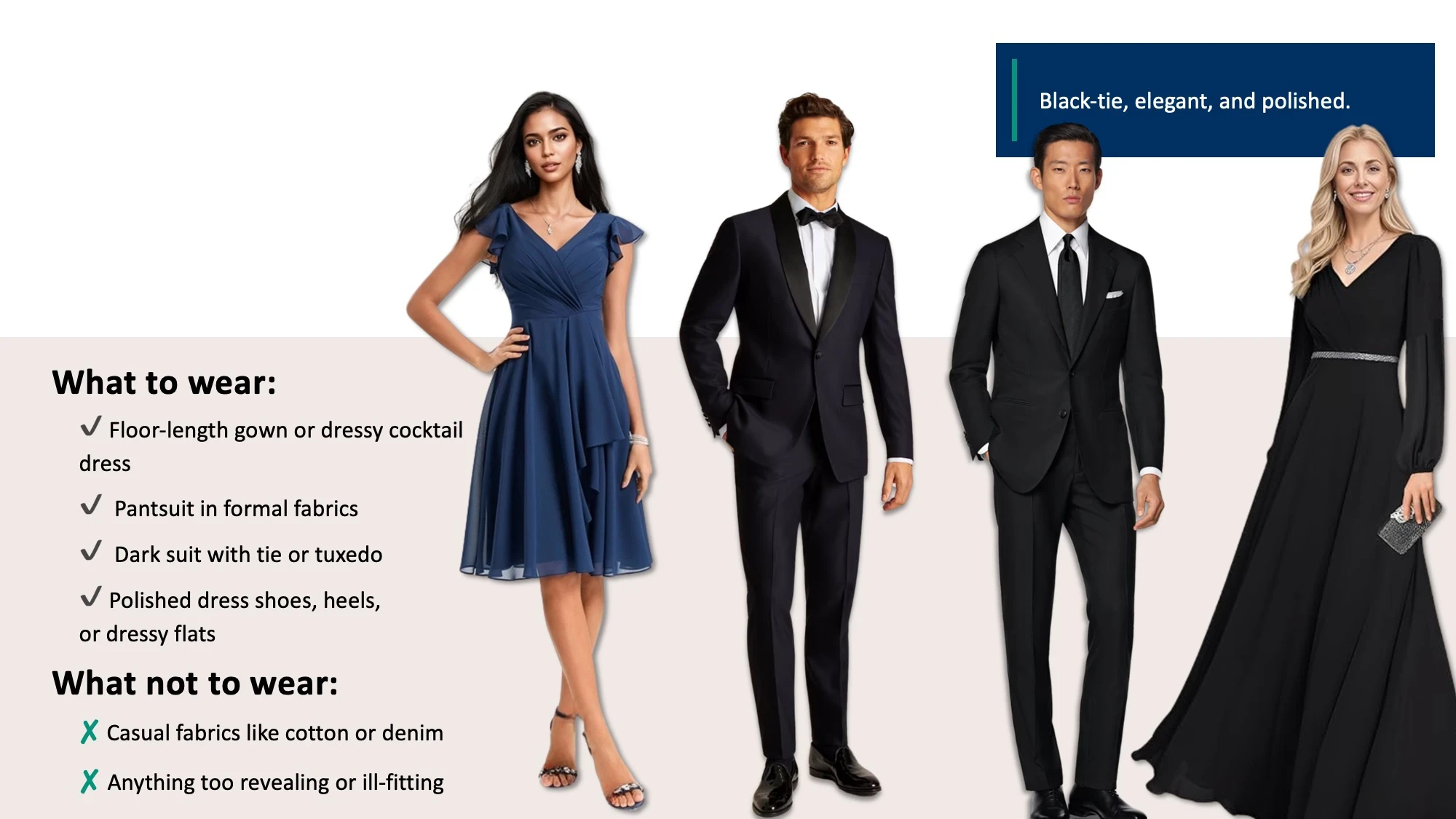Properly dressed & poised for success

Raise your hand if you've ever packed for a work event, checked the dress code and still had no idea what to wear. Business casual? Cocktail attire? Dress to impress? These cryptic cues often create more confusion than clarity. One person shows up to the event in jeans and a cardigan, another in a chic pantsuit and suddenly you’re second-guessing everything in your suitcase.
This stress usually stems from vague, outdated or overly creative dress code language. And in today’s era of remote work and shifting social norms, even the basics aren't so basic anymore. For younger professionals in particular, unclear dress codes often leave them unsure about what’s considered appropriate attire. So, let’s outline the outfit lingo, shall we?
Business casual
It’s not yoga pants and a tee (unless you work for a fitness apparel company). Think a chic trouser and a blouse that says, “I read the conference guidelines, but I also read Vogue.”

Cocktail attire
It’s not a ball gown, but it’s also not your Sunday best. Try a sleek dress or sharp blazer that says, “I’m here to close deals and turn heads.”

Formal
Is this Paris Fashion Week or your power suit? Think elevated everything while you sip, schmooze and shine.

Attire anxiety & why it matters
In Hilton’s proprietary research1, we found that appearance matters, with 79% of Gen Z-ers feeling a little anxious about not having the right attire and nearly a third saying they will buy new clothes and get a haircut for the occasion. Clearly, appearance isn’t just a detail — it’s a driving concern, especially for Gen Z, who is willing to invest time and money to feel confident and prepared.
- Gen Z (80%) and Millennials (77%) have additional anxiety about getting dressed up or about needing to fix their hair or makeup, especially when they are used to a more casual work-from-home environment. As one 19-year-old female respondent shared, “I’ll learn about the content of the meetings and memorize anything I have to say. I will stress over my attire the most.”
- Over half of first-time professionals said they are more likely to be frustrated when they’re required to stick to strict attire guidelines, like a logoed shirt or themed clothing (think “80s night”). If that many attendees are put off by the dress code, it’s worth reconsidering it! Instead of enforcing uniform dressing to show company spirit, offer clear guidelines that give attendees the autonomy to dress appropriately, but still feel like themselves. Not only will this foster comfort and confidence, but it also saves you a little money on branded apparel. Win, win!
Power of preparation
Hilton’s survey found that 67% of respondents said that knowing the suggested attire well in advance would help them feel more comfortable attending in-person events. This knowledge gives attendees ample time to plan their wardrobe and go shopping if needed.
According to Skift Meetings, there are several helpful tips to ensure your guests understand and meet dress code expectations.
- Communicate details about the venue. Is the building or event space typically cold? Then, encourage attendees to bring a light jacket or sweater. Is the venue large? Comfortable shoes might be necessary if there’s a lot of walking involved.
- Clarify what different dress codes actually mean. Casual doesn’t mean sweats and sneaks, right? Get specific.
- Understand that phrases like “cocktail attire” can mean different things to different people. Leave the bold tones and overly dramatic accessories at home for this type of event. In a recent Skift article, the point was made:
“Typically, cocktail attire means shorter hemlines, like knee or tea-length, in a darker or neutral color.”
Ready for stylized success at your next event?
To make your job as a planner easier, Hilton has created a free, customizable resource featuring visual mood boards that clearly outline what to wear — and what to avoid — so your attendees can pack with confidence. You can download the template, personalize it with your branding and tailor it to fit your event’s tone and dress expectations.
Don’t forget … advanced notice can make all the difference. People appreciate the opportunity to do a little planning. And a little shopping!
1. *Ipsos poll conducted between September 30 – October 16, 2024. For this survey, a sample of 1,050 U.S. adults ages 18-65 were interviewed online in English. To qualify for the survey, respondents must be planning to attend an in-person work event in the next 24 months. Additionally, nine focus groups were held in 2024 for qualitative feedback.
